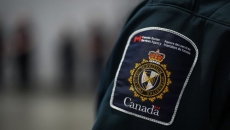OTTAWA - About two-thirds of people with disabilities encountered barriers on federally regulated planes and trains in 2019 and 2020, highlighting a lack of consultation and enforcement by agencies involved, the federal auditor general says in a new report.
Auditor general Karen Hogan says in the report that Via Rail and the Canadian Air Transport Security Authority have made accessibility improvements over the last several years, but serious gaps still remain.
"It's frustrating enough to land after a flight only to find that your luggage didn't make it," Hogan said of her findings at a meeting of the House of Commons public accounts committee on Monday.
"Now consider the impact when that missing cargo is not your toothbrush or change of clothes, but your wheelchair — and without it, you are unable to move around independently."
Booking sites, for example, are still not fully accessible, even though issues with the sites are the most frequent barriers reported by by people with disabilities when using those transportation services.
While some of the issues were considered minor and wouldn't affect travel, others created major problems — such as the wrong departure times showing up for people using a screen reader to access the Via Rail website.
Part of the problem is that just four Canadian Transportation Agency employees are responsible for keeping track of and enforcing more than 450 accessibility rules for more than 130 transportation service providers, the report says.
"As a result, some of the barriers could remain, and new ones could be introduced," the report states.
During the pandemic, inspections by those employees were mainly virtual, limiting their ability to root out barriers for travellers who are disabled.
"They were really just focusing in on the design of the service instead of the actual service delivery," Hogan told the committee.
The Canadian Transportation Agency has promised to consult with and shadow travellers with a variety of disabilities on their journey to get an idea of their experience, and include that information in their renewed enforcement strategy.
The agency also said it would look at hiring more people, if there is money available.
Transportation is a major sector covered by the Accessible Canada Act, which aims to remove barriers to accessibility in areas of federal jurisdiction by 2040.
But while Via Rail and CATSA take in complaints about accessibility, they're dealt with on a one-off basis, rather than being used to take a broader look at the accessibility of their services overall, Hogan found.
"Overall, we found that both VIA Rail and the Canadian Air Transport Security Authority missed opportunities to gain insights on the travel experiences of persons with disabilities by not conducting a more thorough analysis of available complaint data," the report says.
Hogan also found that almost a third of executives and managers at CASTA were late in completing mandatory accessibility training, and at Via Rail, 39 per cent were late while 17 per cent didn't do it at all.
The accessibility audit is one of four reports released by the auditor's office on Monday.
In an investigation into international aid, Hogan found that Global Affairs Canada has no sense of whether development money meant to help women and girls abroad is actually advancing gender equity, because the government isn't tracking whether projects are meeting government goals.
In a separate audit, Hogan found the slow rollout of high-speed internet in rural parts of the country has put First Nations at an economic disadvantage, excluding communities from accessing education, work and medical and government services online.
The auditor and her team also made a series of recommendations on the reconstruction of Centre Block on Parliament Hill, and urged the government to make some key decisions before the major work begins.






